Dirty Transmission Fluid: Symptoms and When to Change It
What Is Transmission Fluid and Why Does It Matter
Transmission fluid has multiple functions, but mainly it keeps your vehicle operating smoothly. It acts as a coolant and provides lubrication to reduce friction between moving parts. It also helps maintain the hydraulic pressure, which is needed for proper transmission shifts. A car with a manual gearbox relies on manual transmission fluid to lubricate the moving parts and keep everything running smoothly. On the other hand, vehicles with automatic gearboxes use automatic transmission fluid, which lubricates and helps with cooling and maintaining hydraulic pressure for smooth transmission shifts. Transmission fluid directly impacts performance and longevity, unlike other fluids in your car.
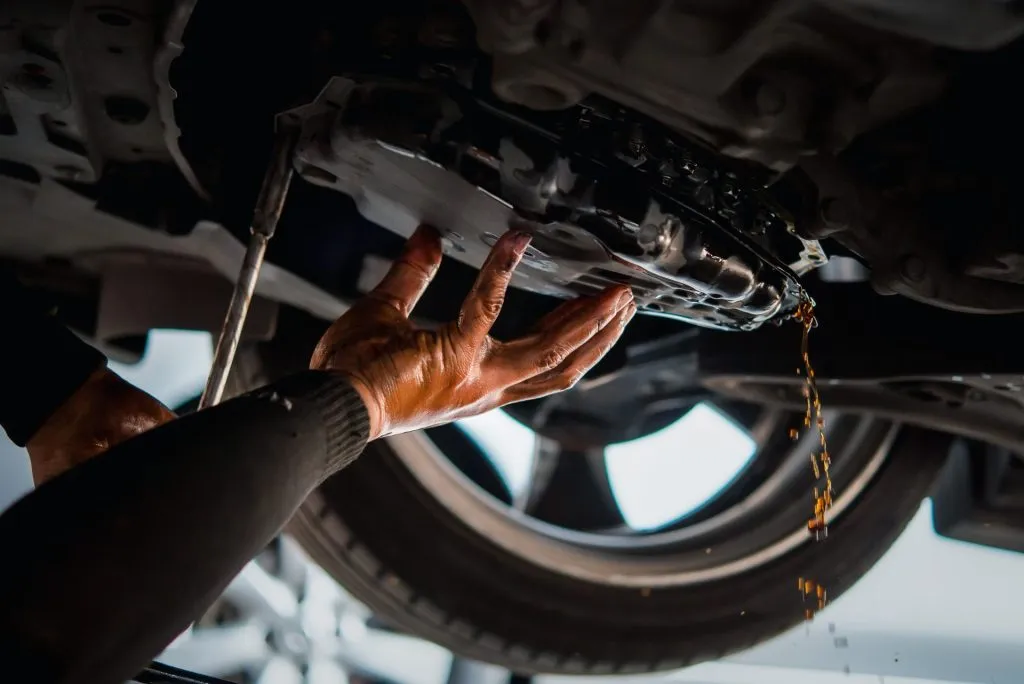
Over time, contaminated transmission fluid can lead to expensive damage, such as worn clutch packs, damaged valve bodies, burnt torque converters, and overheated transmissions. That’s why regular service (including checking the transmission dipstick and scheduling a transmission flush) is essential. Replacing it with fresh fluid helps prevent issues before they start.
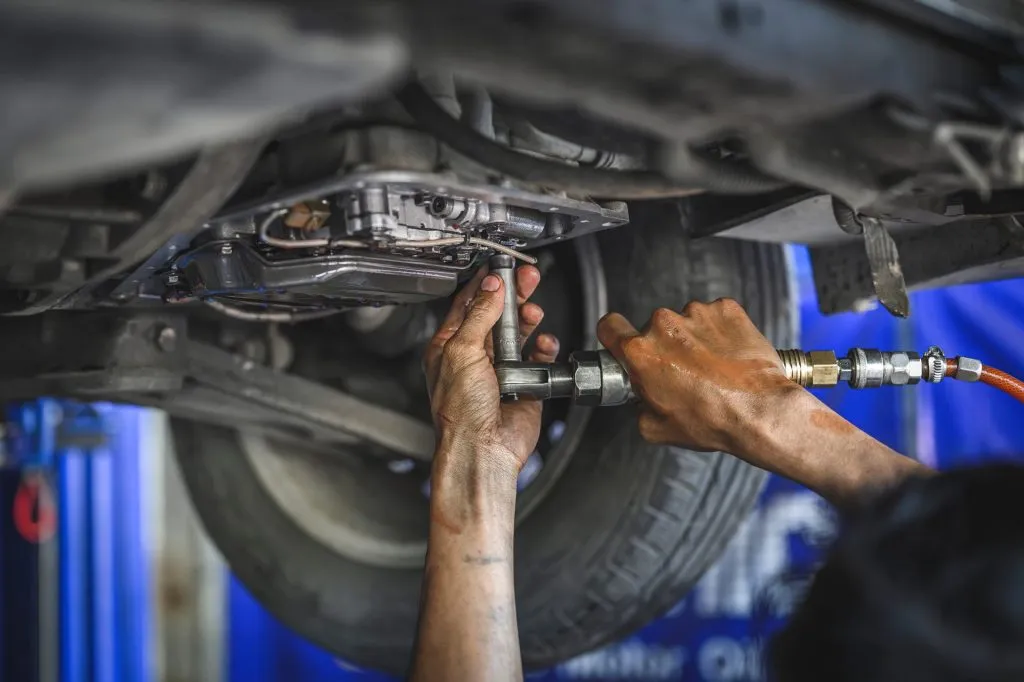
How Does Transmission Fluid Get Dirty?
Transmission fluid can break down over time, even under normal conditions and circumstances. However, these factors speed up contamination and put your vehicle’s transmission at risk:
- Friction material wear: As clutch packs and bands wear out, they produce debris that gets mixed with the hydraulic fluid, making it less effective.
- Overheating: The torque converter generates heat, and other moving metal parts degrade the fluid’s properties, reducing the transmission fluid’s effectiveness for lubrication and cooling.
- Moisture contamination: Water can infiltrate the system through seals or sudden temperature fluctuations. This weakens the transmission fluid and reduces its capacity to protect components.
- Metal shavings: Contact between moving metal parts causes microscopic metal fragments to enter the fluid, leading to wear and potential transmission slipping.
- Delayed or skipped flush: If you don’t flush the system regularly, old transmission fluid remains in circulation and becomes filled with pollutants that interfere with how transmission fluid acts inside the system.
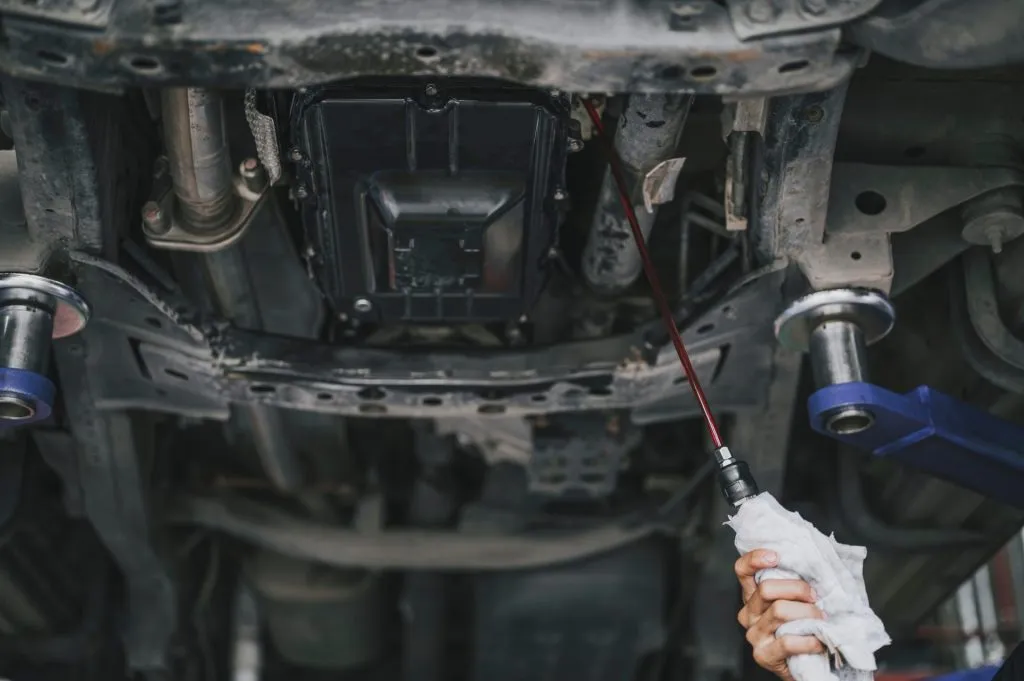
What Does Dirty Transmission Fluid Look Like?
Visual inspection of transmission fluid can reveal much about your vehicle’s transmission condition. How to tell the difference between clean fluid and dirty fluid:
- Transmission fluid color: Clean fluid is bright red or pink. Dirty fluid typically appears dark brown or black, indicating oxidation, contamination, or overheating.
- Smell: A burnt or sour smell suggests the transmission oil has overheated or broken down a sign it might be time for an oil change.
- Consistency: Healthy fluid feels smooth and slick. Dirty fluid is often thicker and sometimes rough-textured, indicating wear inside the transmission.
- Fresh vs. old: The fluid may appear slightly darker in older manual transmission cars, even when still functional. However, a transmission fluid change or full service is likely needed if it’s black or smells burnt.
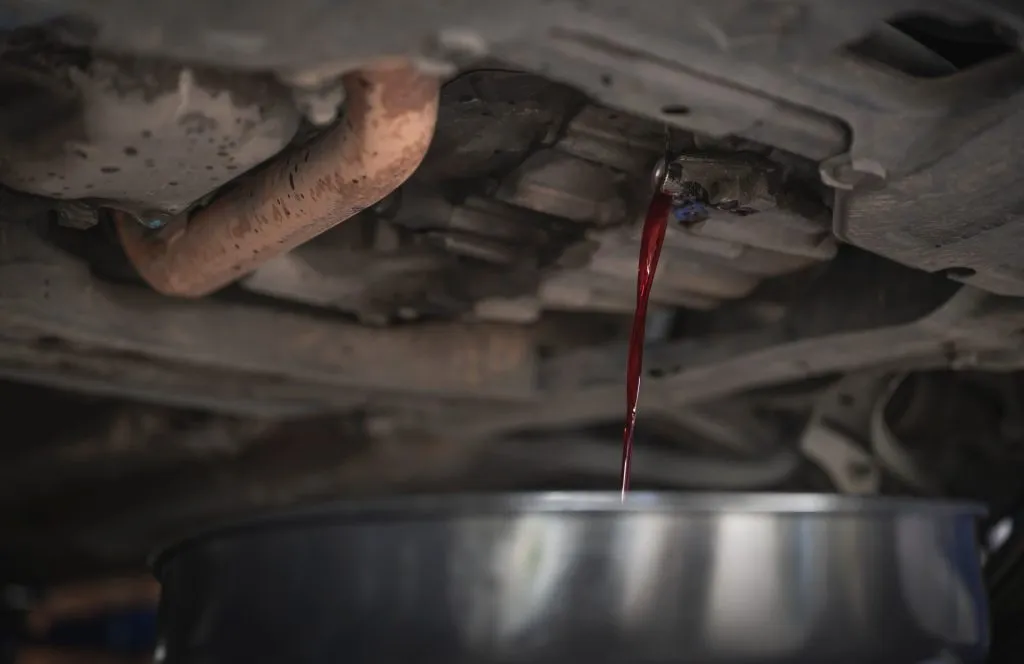
Symptoms of Dirty Transmission Fluid
Watch for these symptoms of dirty transmission fluid:
- Grinding noises: A sign that old transmission fluid isn’t lubricating parts properly, causing friction between components.
- Whining or humming: Often heard while driving or idling, these sounds can indicate the transmission fluid has lost its protective qualities.
- Check Engine light: Contaminated or old fluid can affect transmission performance, triggering a warning even if your engine oil is fine.
- Sudden RPM jumps: If RPM spikes before shifting gears, it could mean pressure problems caused by degraded fluid.
- Delayed or harsh shifting: When fluid can’t flow or build pressure as it should, gear changes become rough.
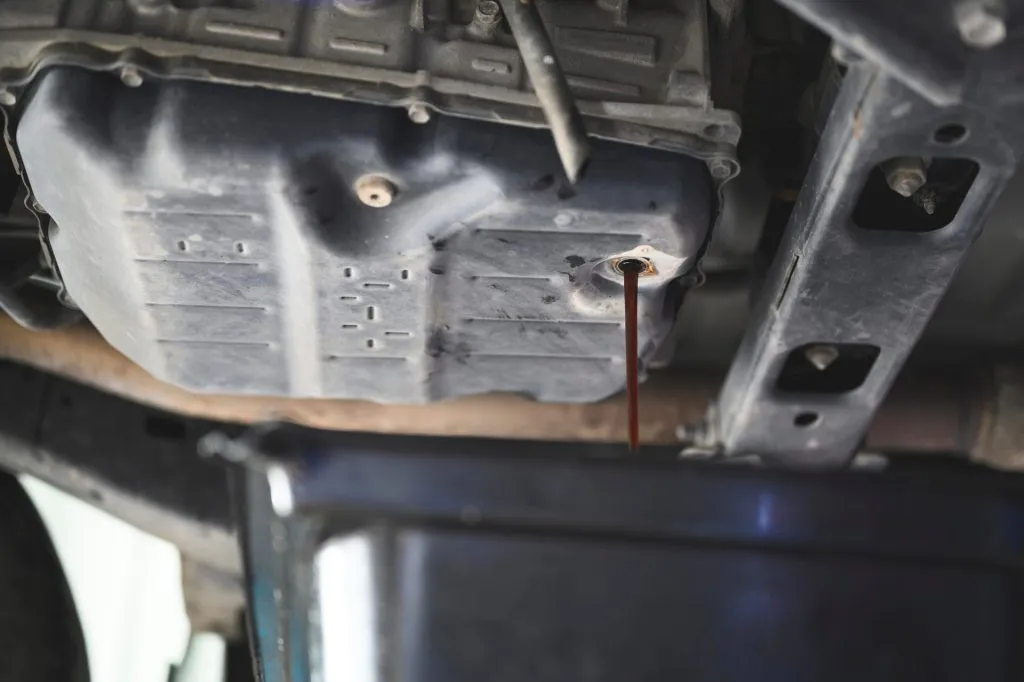
Why You Shouldn’t Neglect Dirty Transmission Fluid
Neglecting transmission fluid can seriously damage your car’s transmission, especially in automatic transmissions where the fluid plays a crucial role in lubricating internal components, controlling gear changes, and acting as a secondary coolant within the transmission system – issues that may eventually require Gearbox Repair. Unlike motor oil, which many drivers check routinely, transmission issues often go unnoticed until a low fluid level or leak causes big problems. Contaminated fluid can clog the valve body, reduce fuel efficiency, and overheat the cooling system, leading to expensive repairs. Your vehicle’s owner’s manual outlines proper transmission maintenance, and ignoring it at this point may cost far more than a routine fluid replacement.
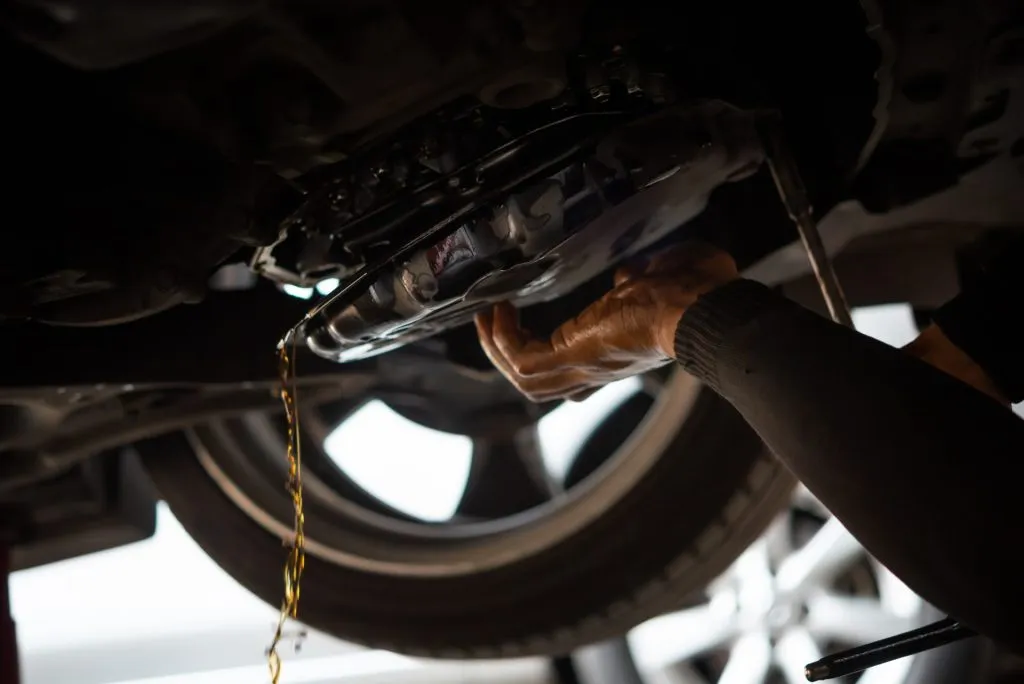
How Often Should Transmission Fluid Be Changed?
There’s a way to reduce the risk of damage or even delay the need for a complete overhaul. Try to follow these recommendations.
- Follow your vehicle’s service schedule. Manufacturers recommend changing transmission fluid every 50,000 to 100,000 km for most transmissions. Always check the actual interval in your vehicle’s manual.
- Consider climate and driving conditions: High temperatures and stop-and-go traffic in the UAE may increase friction and wear. So, if you live there, you’ll need more frequent fluid checks and earlier replacements.
- Inspect for leaks regularly: A small leak can become a big and costly problem for your car. Catching it early helps maintain fluid levels and avoid transmission damage.
- Get the flush in time: A proper flush removes old fluid and debris from the system, improving performance and extending lifespan.
- Pay attention to your vehicle’s health: Many car owners notice rough shifting or unusual noises before a failure. These are indicators that the service is overdue.




